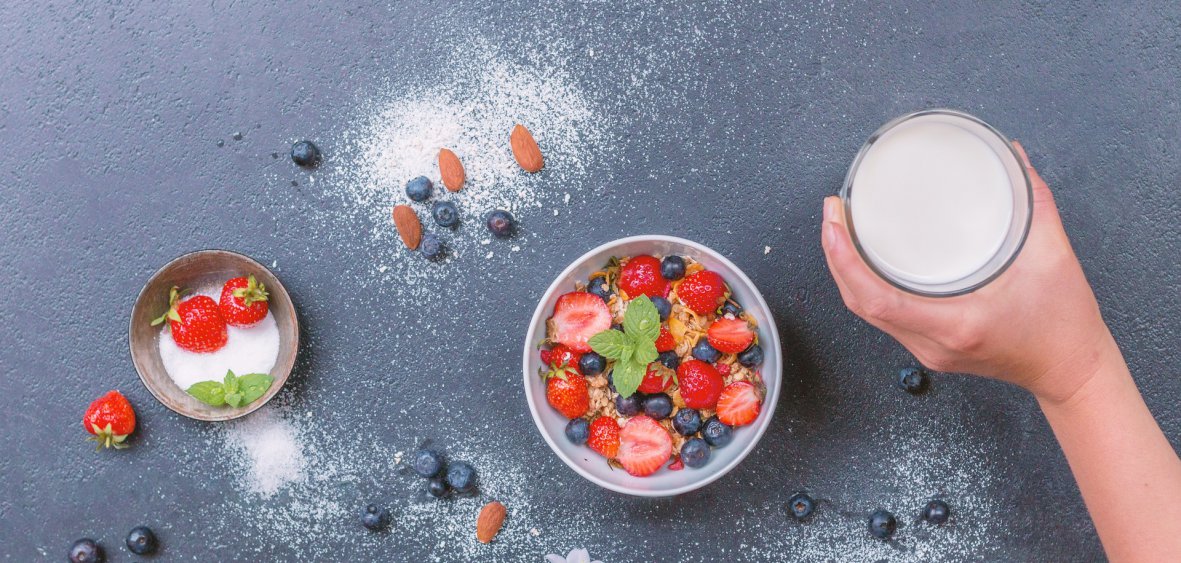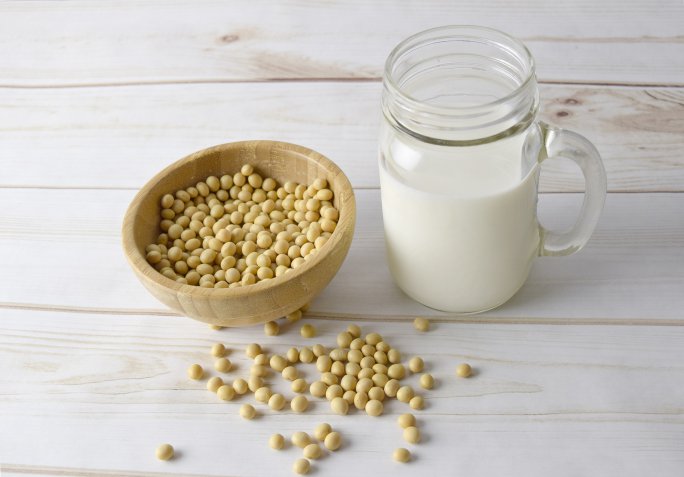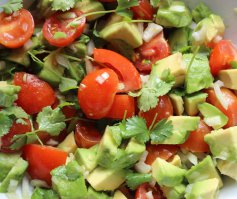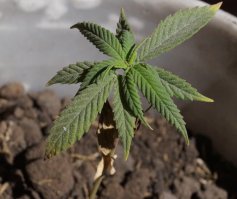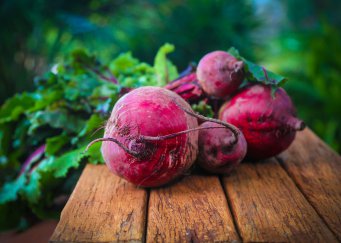Vegetable milk - properties
Vegetable milk can be a great substitute for animal milk. It is obtained by soaking and then milling and filtering the seeds or nuts through a sieve. This process results in a product that does not contain lactose or protein, which is characteristic of animal milk, and what is more, it is easily digestible and rich in all kinds of micro and macroelements, because it is not processed. As unpasteurized and free of natural antibiotics, it can be a good alternative to cow's milk, for all vegans, as well as for people who are allergic to some of its ingredients.
Plant milk types
Nowadays, producers of such milk offer us several types of milk:
- soya, derived from leguminous plants,
- cereal, i.e. rice, lamb, oat, or spelt,
- buckwheat,
- Almonds and nuts, i.e. those traditionally obtained from hazelnuts or seeds.
Each of the mentioned types of milk of plant origin will be different from the others. This is influenced by the specific taste, aroma and consistency of the product. Sometimes differences can also be seen in colour. Each of these milk can be used according to our individual preferences - as a separate drink, coffee supplement or ingredient of dishes. However, in order to choose wisely, it would be useful to know the unique nutritional values contained in individual products.
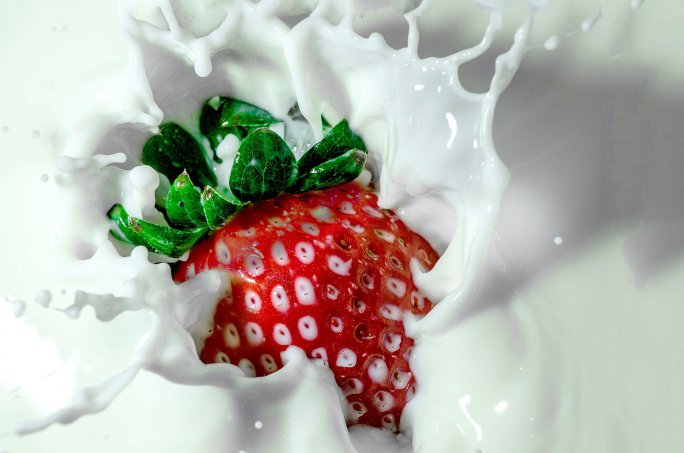
How to make vegetable milk?
Making your own vegetable milk can be compared to baking bread. The first time, certainly, it will not be easy, but later everyone will learn the right rules. In order for everything to succeed, however, there are some basic issues to keep in mind, such as soaking the seeds.
Thanks to this treatment, mixing will be much easier and, what is more, moreover, more effective. Soaked seeds will contain more milk. In addition, thanks to this, we dispose of toxic enzymes.
The technique used to produce vegetable milk is very simple. First, soak the seeds, grains or nuts. Leave them in water overnight to soak in water. The next step is to thoroughly rinse and mix in a few glasses of water, the amount of which depends on the consistency we want to obtain. After grinding, filter the suspension through the gauze. What is left in the filter can be used for pancakes or as a thickener for soup. In the case of peeled nuts, they can be scalded with hot water.
Provisions for domestic vegetable milk
Coconut milk
- 200 g of coconut chips (soaked overnight),
- 1.2 litres of water.
Preparation:
After soaking the coconut chips overnight, they should be heated to 60 degrees Celsius and then mixed. Strain all through the gauze and store in the refrigerator. Shake well before use.
Rice milk
- 2 litres of water,
- 4 tablespoons of rice,
- a pinch of salt,
- 1 tablespoon of xylitol.
Preparation:
Rinse the rice, add salt and boil for about two hours. After this time, cool and add xylitol, then mix the resulting mass and filter through a sieve. Store in a refrigerator and consume within 48 hours.
Almond milk
- 1 glass of blanched almonds (soaked overnight),
- 4 glasses of water,
- 3 tablespoons of maple syrup.
Preparation: Mix the whole and strain through the gauze. The resulting sludge is perfect as pancake filling, as well as an ingredient of cakes and vegan pâté. It can also be successfully used as a spread for bread.
Lamb's milk
- 1 glass of boiled lamb groats,
- 1 glass of cashews or almonds (soaked overnight),
- 1 teaspoon of vanilla extract or pulp from 1 vanilla stick,
- 2.5 glasses of water,
- 3 dried dates,
- a pinch of salt.
Preparation:
The ingredients are mixed and then strained through a gauze or sieve. The milk is fit for consumption within two days of preparation. It should be kept in the refrigerator.
Soya milk
- 1 glass of non-genetically modified soya beans (soaked overnight in 3 glasses of water),
- 6 glasses of water.
Preparation:
Soya, which has swelled with water overnight, should be added to three glasses of water and boiled on a small gas for 30 minutes. Then mix and drain through a gauze. You can add a spoonful of honey or xylitol. The resulting okara can be added to the stuffing for pigeons or croquettes and bread.
Oat milk
- 4 tablespoons of oat flakes,
- 400 ml of water,
- a pinch of salt or 1/2 teaspoon of xylitol.
Preparation:
Add 4 tablespoons of oat flakes to the water and mix. Then drain into another container and sweeten for taste. You can also add salt, depending on your preferences.
Cashew milk
- 1 glass of cashew nuts (soaked overnight),
- 3 glasses of water,
- 1 tablespoon of xylitol (stevia or other sweetener)
Preparation: Mix and filter through the gauze. Residue - nuts set on gas, can be used as cheese for sweet cakes, or spread them on pancakes.
Spelt milk
- 1 glass of spelt grains (soaked overnight),
- 4-5 glasses of water,
- a spoon of xylitol or a little less stevia.
Preparation: Blend and strain the whole. Store milk in the fridge.
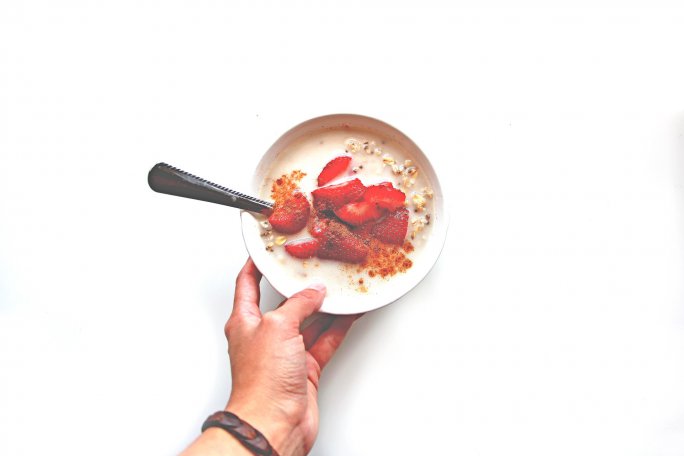
Buckwheat milk
- 1/2 glass of buckwheat (soaked overnight),
- 2 glasses of water,
- 2 teaspoons of organic vanilla sugar.
Preparation:
Drain buckwheat groats soaked overnight and pour into a pot. Then pour water again and boil until softened. During cooking, you can add vanilla sugar. The finished stock should be mixed, strained and poured into a glass container. Store the mixture in the refrigerator.
Barley milk
- 1/2 glass of barley flakes,
- 2 glasses of water,
- 2 teaspoons of organic vanilla sugar,
- 1/2 teaspoon of salt.
Preparation:
Soak the flakes overnight and boil until softened, adding sugar and salt. Mix the finished substance and strain through the gauze.

